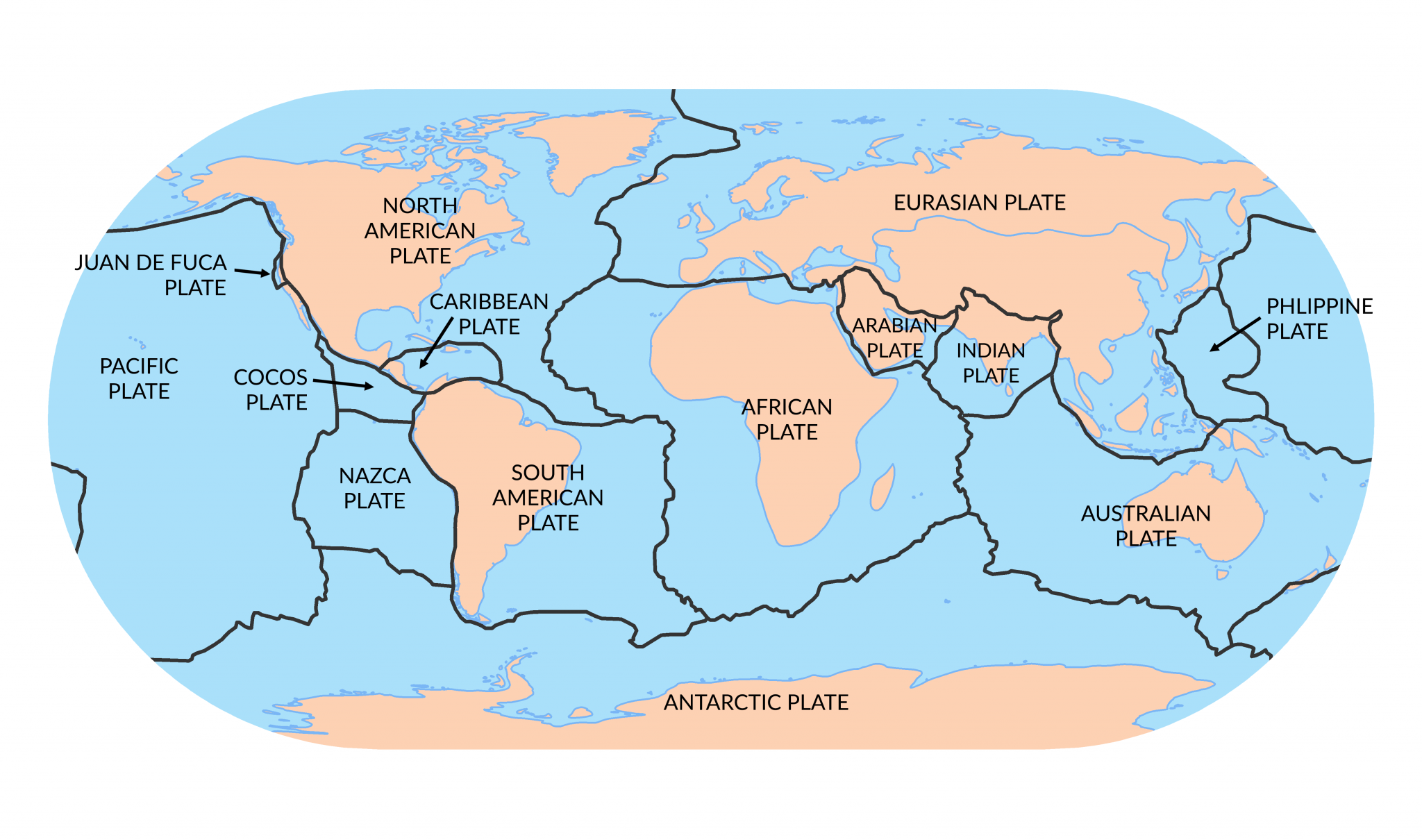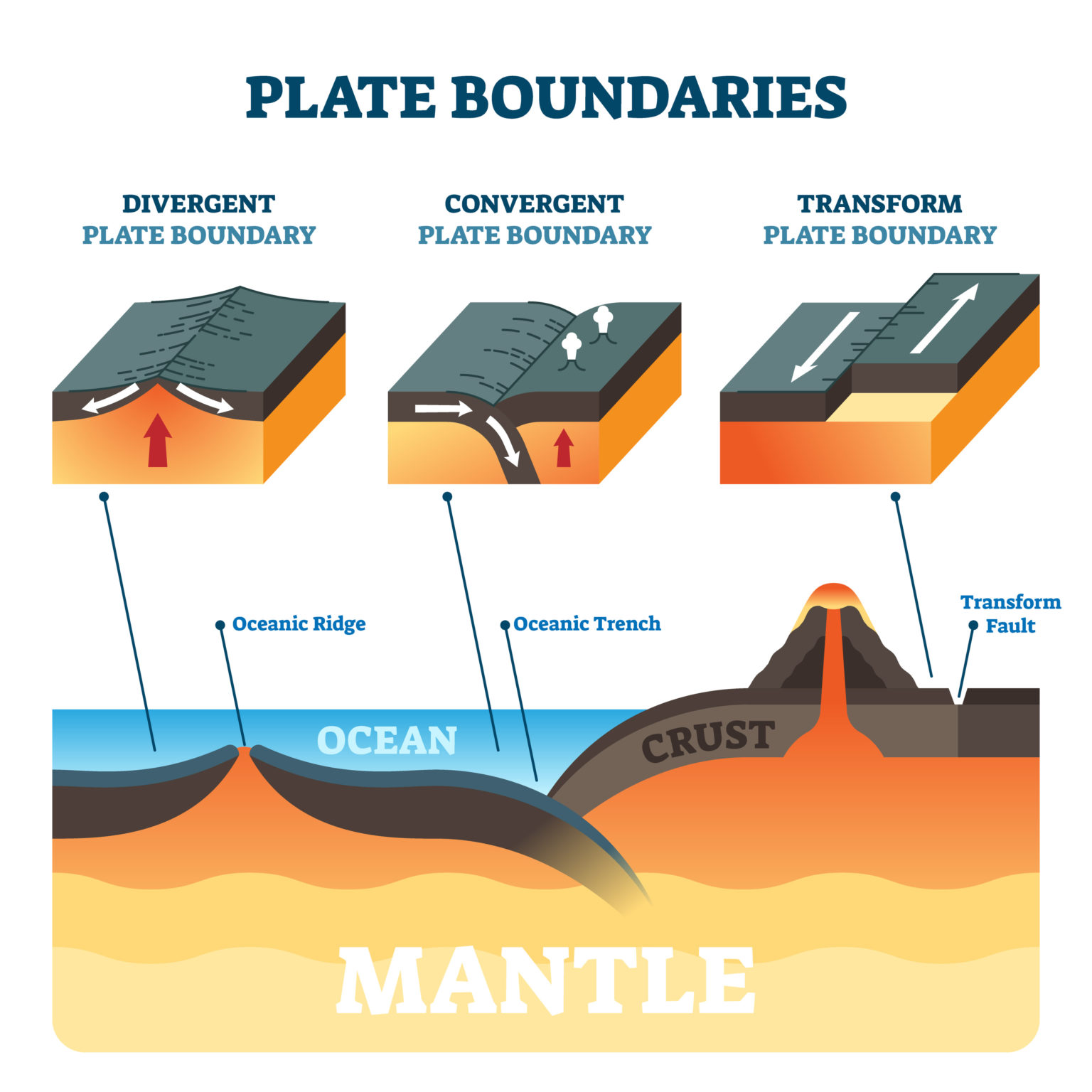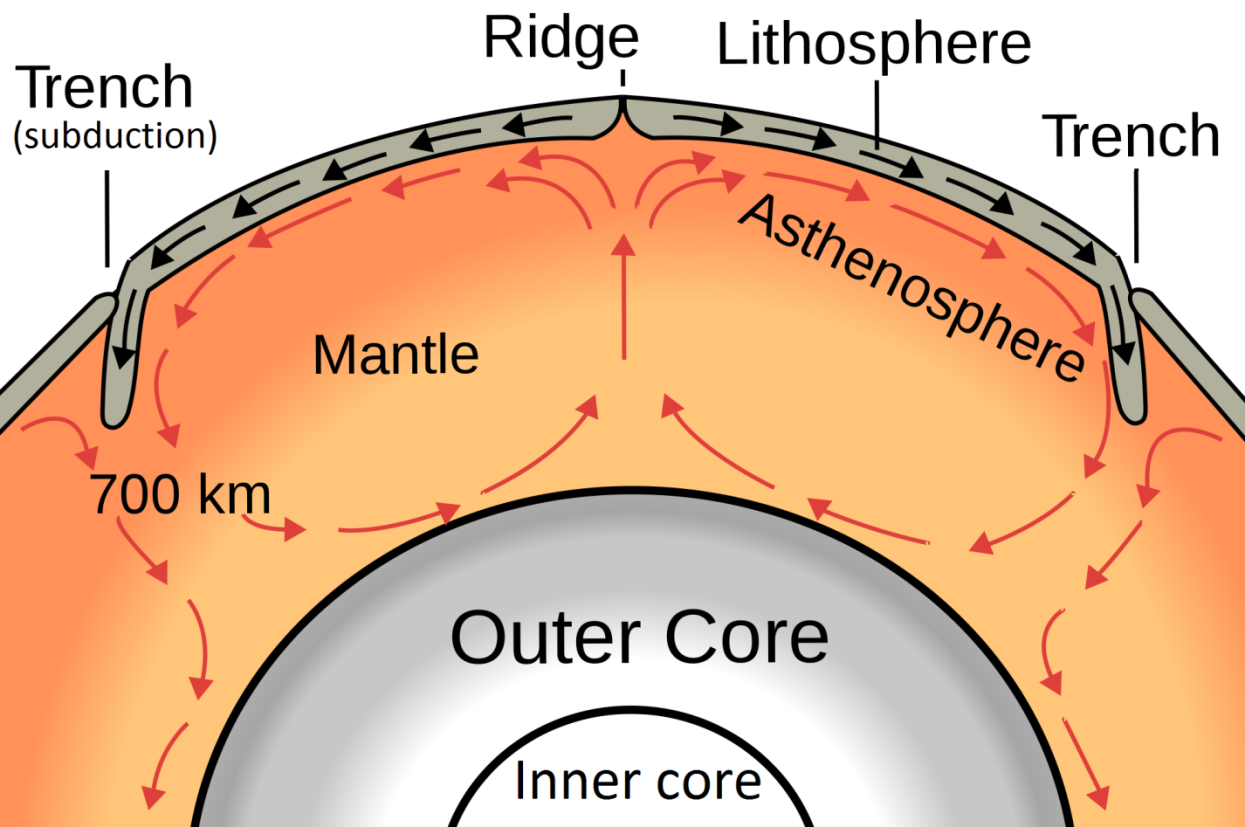Plate Tectonics Drawing
Plate Tectonics Drawing - Explain which types of plate boundaries create crust, and which destroy crust. The process of drawing a picture involves students much more deeply than reading or. Web earth's lithosphere is broken up into tectonic plates, which move slowly over time. Image courtesy of the u.s. Web three types of plate boundaries exist, characterized by the way the plates move relative to each other. Use your spoon to flatten the magma so it's evenly distributed. Web plate tectonics is the theory that earth’s outer shell is divided into several plates that glide over the mantle, the rocky inner layer above the core. Students will examine divergent, convergent, and transform plate boundaries. Students will draw plate boundaries on a map and learn that more scientific data are needed to more accurately locate certain boundaries. Web plate tectonics is the theory that earth's outer shell is divided into large slabs of solid rock, called “plates,” that glide over earth's mantle, the rocky inner layer above earth’s core. Web draw a time series for different types of plate boundaries and their motions, indicating the related surface features. Web plate tectonics is the theory that earth's outer shell is divided into large slabs of solid rock, called “plates,” that glide over earth's mantle, the rocky inner layer above earth’s core. We live on a layer of earth known as. Divergent boundaries (constructive boundaries or extensional boundaries). Web plate tectonics—the unifying theory of geology. The process of drawing a picture involves students much more deeply than reading or discussion. Web plate tectonics is the theory that earth’s outer shell is divided into several plates that glide over the mantle, the rocky inner layer above the core. Students will examine divergent,. These are where two plates slide apart. Web there are three kinds of plate tectonic boundaries: Web draw a time series for different types of plate boundaries and their motions, indicating the related surface features. Divergent boundaries (constructive boundaries or extensional boundaries). Web students will examine plate boundaries, continents, and oceans on a globe. The plates act like hard and rigid shells compared to earth’s mantle. Plate tectonics mountain forming drawing. Deduce the type of plate boundary given images or descriptions of surface features. Red for divergent boundaries, blue for convergent boundaries, and green for transform boundaries). They are associated with different types of surface phenomena. Web expert groups will each have a google slide with specific instructions for their specialty: Web plate tectonics is the theory that earth’s outer shell is divided into several plates that glide over the mantle, the rocky inner layer above the core. Web there are three kinds of plate tectonic boundaries: Web hypothesize where you think the major plate boundaries. Explain which types of plate boundaries create crust, and which destroy crust. Deduce the type of plate boundary given images or descriptions of surface features. Web updated on september 23, 2023 “plate boundaries interact with each other in 3 primary ways. Students will draw plate boundaries on a map and learn that more scientific data are needed to more accurately. This strong outer layer is called the lithosphere. And, how movements of these plates produce earthquakes, volcanoes, ocean trenches, mountain ranges, and more. The different types of plate boundaries are: Shaving cream can, tub, cards, spoon, mesh screen, and towels. These slabs are called tectonic plates and fit together like pieces to a puzzle. Web three types of plate boundaries exist, characterized by the way the plates move relative to each other. The types of plate tectonic boundaries are divergent, convergent, and transform (conservative).” here’s a short description of the 3 types of plate tectonics: Web there are three kinds of plate tectonic boundaries: We live on a layer of earth known as the. Web plate tectonics is the theory that earth’s outer shell is divided into several plates that glide over the mantle, the rocky inner layer above the core. Web in both cases the juan de fuca plate is moving relative to the pacific plate, and there are frequent small earthquakes along these boundaries. The different types of plate boundaries are: The. Red for divergent boundaries, blue for convergent boundaries, and green for transform boundaries). And, how movements of these plates produce earthquakes, volcanoes, ocean trenches, mountain ranges, and more. Divergent boundaries (constructive boundaries or extensional boundaries). Deduce the type of plate boundary given images or descriptions of surface features. Web updated on september 23, 2023 “plate boundaries interact with each other. The different types of plate boundaries are: Web plate tectonics is the theory that earth's outer shell is divided into large slabs of solid rock, called “plates,” that glide over earth's mantle, the rocky inner layer above earth’s core. Divergent plates pull apart from each other. This strong outer layer is called the lithosphere. Learning objectives the goals of this chapter are to: These are where two plates slide apart. Students model earth's tectonic plate movement and explore the relationship between these movements and different types of volcanoes. Web plate tectonics is the theory that earth’s outer shell is divided into several plates that glide over the mantle, the rocky inner layer above the core. Divergent boundaries (constructive boundaries or extensional boundaries). Web expert groups will each have a google slide with specific instructions for their specialty: Web plate tectonics—the unifying theory of geology. African plate antarctic plate arabian plate australian plate caribbean plate cocos plate eurasian plate indian plate juan de fuca plate nazca plate north american plate pacific plate philippine plate These slabs are called tectonic plates and fit together like pieces to a puzzle. Web in both cases the juan de fuca plate is moving relative to the pacific plate, and there are frequent small earthquakes along these boundaries. The shifts and movements of these plates shape our landscape including the. Deduce the type of plate boundary given images or descriptions of surface features.
Plate Tectonic Types Divergent, Convergent and Transform Plates

2 Schematic representation of the three types of plate boundaries

Using Tectonic Plates to Draw Terrain Worldbuilding
Plate Tectonics Mountain Forming Drawing Stock Illustration Download

Orange Peel Plate Tectonics Geology for Kids
Plate Tectonics Plate Tectonics and Plate Boundaries
Plate Tectonics Subduction Stock Illustration Download Image Now iStock
:max_bytes(150000):strip_icc()/tectonic-plates--812085686-6fa6768e183f48089901c347962241ff.jpg)
A Map of Tectonic Plates and Their Boundaries

Tectonic plate Royalty Free Vector Image VectorStock

1.5 Fundamentals of Plate Tectonics Physical Geology
A Plate Boundary Is Where Two Tectonic Plates Meet.
Red For Divergent Boundaries, Blue For Convergent Boundaries, And Green For Transform Boundaries).
We Live On A Layer Of Earth Known As The Lithosphere Which Is A Collection Of Rigid Slabs That Are Shifting And Sliding Into Each Other.
Students Will Draw Plate Boundaries On A Map And Learn That More Scientific Data Are Needed To More Accurately Locate Certain Boundaries.
Related Post:

